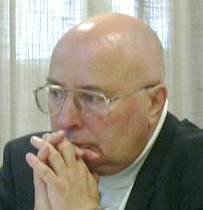Planning worship?
Check out our sister site, ZeteoSearch.org,
for 20+ additional resources related to your search.
- |
User Links
Person Results
Richard Storrs Willis

1819 - 1900 Person Name: Richard Storr Willis Arranger of "ST. ELIZABETH" in TTT-Himnaro Cigneta Richard Storrs Willis (February 10, 1819 – May 10, 1900) was an American composer, notably of hymn music. One of his hymns is "It Came Upon the Midnight Clear" (1850), with lyrics by Edmund Sears. He was also a music critic and journal editor.
Willis, whose siblings included Nathaniel Parker Willis and Fanny Fern, was born on February 10, 1819, in Boston, Massachusetts. He attended Chauncey Hall, the Boston Latin School, and Yale College where he was a member of Skull and Bones in 1841.
Willis then went to Germany, where he studied six years under Xavier Schnyder and Moritz Hauptmann. While there, he became a personal friend of Felix Mendelssohn. After returning to America, Willis served as music critic for the New York Tribune, The Albion, and The Musical Times, for which he served as editor for a time. He joined the New-York American-Music Association, an organization which promoted the work native of naturalized American composers. He reviewed the organization's first concert for their second season, held December 30, 1856, in the Musical World, as a "creditable affair, all things considered".
Willis began his own journal, Once a Month: A Paper of Society, Belles-Lettres and Art, and published its first issue in January 1862.
Willis died on May 7, 1900. His interment was located at Woodlawn Cemetery.
His works and music compilations include:
Church Chorals and Choir Studies (1850)
Our Church Music (1856)
Waif of Song (1876)
Pen and Lute (1883)
--en.wikipedia.org
Richard Storrs Willis
Anonymous
Person Name: Anonimulo en Münster Author of "Bela Jesuo, estro de la estroj" in TTT-Himnaro Cigneta In some hymnals, the editors noted that a hymn's author is unknown to them, and so this artificial "person" entry is used to reflect that fact. Obviously, the hymns attributed to "Author Unknown" "Unknown" or "Anonymous" could have been written by many people over a span of many centuries.
Anonymous
Hendrik Arie de Hoog
1910 - 2001 Translator of "Bela Jesuo, estro de la estroj" in TTT-Himnaro Cigneta H. A. de Hoog (authorities differ as to whether his surname should be alphabetized under d or under H) was a Dutch Esperantist and a member of the Esperanto Academy, head of its grammar section beginning in 1972, president of KELI (the main international association of Protestant Esperantists) and of its Dutch section, author of several books in Esperanto, and a member of the editorial committee that produced Adoru kantante (1971), in which he had fifteen hymn translations; thirteen texts in Adoru (2001).
Hendrik Arie de Hoog
Kloster Kirchberg
Person Name: KK Alterer of "Bela Jesuo, estro de la estroj" in TTT-Himnaro Cigneta Kloster Kirchberg is a pseudonym for the collaborative editorial work performed by the committee that produced ADORU: Ekumena Diserva Libro, the 2001 ecumenical Esperanto hymnal and service book. The members of the committee were Adolf Burkhardt, a German Lutheran pastor, and two Roman Catholic priests, Albrecht Kronenberger and Bernhard Eichkorn.
Kloster Kirchberg
Albrecht Kronenberger

b. 1940 Alterer of "Bela Jesuo, estro de la estroj" in TTT-Himnaro Cigneta Albrecht Kronenberger, born January 21, 1940, in Würzburg, Germany, was one of the three editors of ADORU - Ekumena Diserva Libro. As a youth, lived in Pirmasens and Germersheim; studied philosophy and Catholic theology in Eichstätt (Bavaria), Frankfurt (Hesse), and Speyer, where he was ordained a priest in 1966. After serving as vicar in Frankenthal and Bellheim, he worked from 1969 to 2002 as a Gymnasium (secondary school) teacher of religion in Neustadt an der Weinstraße, where he has remained in his retirement.
Not long after learning Esperanto in the late 1980s, he began to be active in teaching Esperanto in his school and in celebrating Esperanto-language masses in connection with Esperanto conventions and in the cathedral of Speyer (every other month since 1991). In 1991 he also cofounded the Working Union of IKUE in the Speyer diocese, which was officially acknowledged and approved by the bishop.
Albrecht Kronenberger edited the 1,472-page ADORU together with Adolf Burkhardt and Bernhard Eichkorn. He typeset all its texts and music on his computer, as well as writing many texts and some melodies himself. The three editors were awarded the FAME Prize (a cultural prize of the city of Aalen and of the FAME Foundation) in 2002.
In the first few years of the third millennium, Kronenberger edited the new edition of the Esperanto Bible, which appeared in 2006. Beginning in 2007, he put all of the hymns of the Latin Breviary, many of them his own translations, into Vikifonto (the Esperanto version of WikiSource). He initiated and arranged "Kantoj post ADORU", a hymnal supplement published as a special issue (No. 1-3/2009) of Espero Katolika. Since 2009, in collaboration with Marius Gibbels, he has been working on a project (Projekt Deutsch-Esperanto) that aims to produce a truly complete online German-Esperanto dictionary.
The German-language church songbook "Gotteslob" contains one of Albrecht Kronenberger's compositions, a Gloria (#455).
(main source: Esperanto Wikipedia)
Albrecht Kronenberger
August Heinrich Hoffmann von Fallersleben
1798 - 1874 Person Name: Heinrich August Hoffmann von Fallersleben Author, v. 2 (attributed) of "Bela Jesuo, estro de la estroj" in TTT-Himnaro Cigneta
August Heinrich Hoffmann von Fallersleben


 My Starred Hymns
My Starred Hymns


